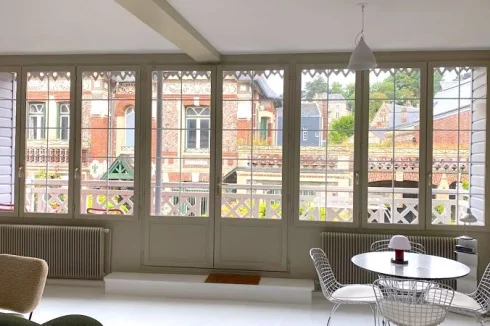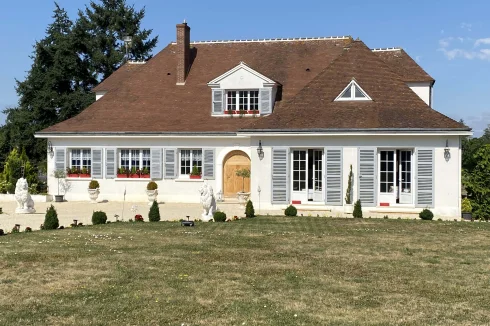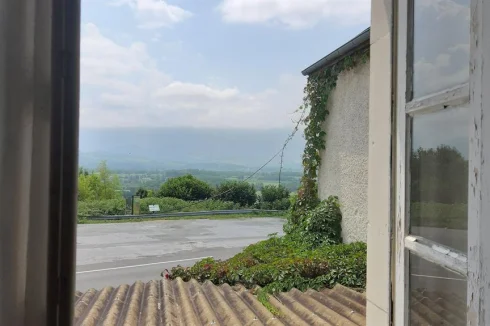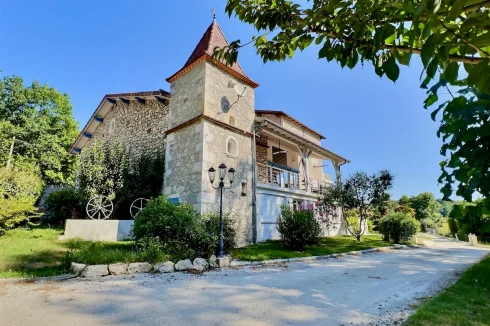Nuisances in Rural France
Tuesday 04 May 2021
A new law protecting the smells and noises of the French countryside looks to be a lot of hot air over nothing.
Under the Loi no 2021-85 du 29 janvier 2021, the government has enshrined the smells and noises of rural France as part of the common heritage of the nation.
The law amends the Code de l’environment to include within it the ‘sounds and smells’ that characterize ‘the spaces, resources and natural terrestrial and marine environments.’
Neighbour disputes and litigation in France over noisy roosters, baying donkeys and smelly mature have grown in recent years, and we have previously reported on some of them: Herd of Cows a Neighbour Nuisance and Frog Chorus a Neighbour Nuisance.
The disputes have come to symbolise what proponents of the law consider to be the (apparently) growing conflict between rural and urban France, with new arrivals and second-home owners from the cities unwilling to put up with some of the inconveniences of living in the countryside.
Perhaps the most celebrated case of such conflicts occurred in 2019 when a couple with a holiday home on the Ile d’Oléron, off the Atlantic coast of Rochefort, complained about the crowing of their neighbour's cockerel (called Maurice), with the court finding in favour of the cockerel.
In another widely reported case a Parisian couple with a holiday home in the small village in Lozère, lodged a legal action for the morning church bells to be turned off. It failed.
It was that case that prompted the local député for the area, Pierre Morel-À-L'Huissier, to introduce a private members bill in the French parliament, which has resulted in the new law.
Many press reports on the impact of the new law suggest that such noises and smells can no longer be subject to complaint by those offended by them, but this is far from the case.
Although that was indeed the intent of the bill introduced by the parliamentarian, during its progress through the French Parliament it was considerably watered down, rendering it almost meaningless.
The law introduces the notion of 'sons et odeurs’ of natural environments into the environmental code.
As originally proposed, the sounds and smells of the countryside were to be enshrined in the Code de patrimoine, and to become therefore an element of the national heritage.
In the final outcome, the two words were merely inserted in the Code de l’environment, giving it far less significance. Neither was the word 'countryside' included in the final text, meaning that it applies to both urban and rural areas. The words 'patrimoine sensoriel des campagnes' in the original bill were removed.
In addition, as originally proposed, noise or olfactory nuisances in the countryside could not be considered 'abnormal neighbour nuisances' thereby ruling out legal action being taken against them. This was not adopted, with the final draft merely asking the government to consider defining in law just what was an 'abnormal neighbour nuisance'.
Critics have questioned the viability of defining just what constitutes a legal nuisance as it will almost always be circumstantial. It is therefore likely that whatever emerges from that exercise will have limited application.
There is likely to be a similar lack of action on another clause in the new law, which provides for a list of these sounds and smells to be drawn up by the regional councils. Just how such a task is to be accomplished, where it draws the line, and how differences between regions will be managed is not made clear.
In their review of the bill the Supreme Administrative Court, the Conseil d'Etat expressed concern about the potentially unlimited scope of the concept, stating that it "encompasses extremely diverse realities. It is therefore inevitably a source of difficulties of interpretation and legal uncertainty."
Thus, such a definition, the judges stated, "by its unlimited scope, includes many natural phenomena whose responsibility, in the civil sense of the term, does not fall to anyone (the sounds of wind and sea, the cries of animals other than those of livestock, the smells of natural vegetation)."
As a result, Elisabeth Botrelle, professor of law at the University of Nantes, states that "the new law is unlikely to have any impact other than a pedological one."
That is a view echoed by Alain de La Bretesche, Director of the Fédération Patrimoine-environnement who stated that it is 'a concept that is more philosophical than juridical' and that 'the entry of sounds and smells in the law of France is more symbolic than effective.'
As is so often the case in France - plus ça change..........
Related Reading:
Thank you for showing an interest in our News section.
Our News section is no longer being published although our catalogue of articles remains in place.
If you found our News useful, please have a look at France Insider, our subscription based News service with in-depth analysis, or our authoritative Guides to France.
If you require advice and assistance with the purchase of French property and moving to France, then take a look at the France Insider Property Clinic.





